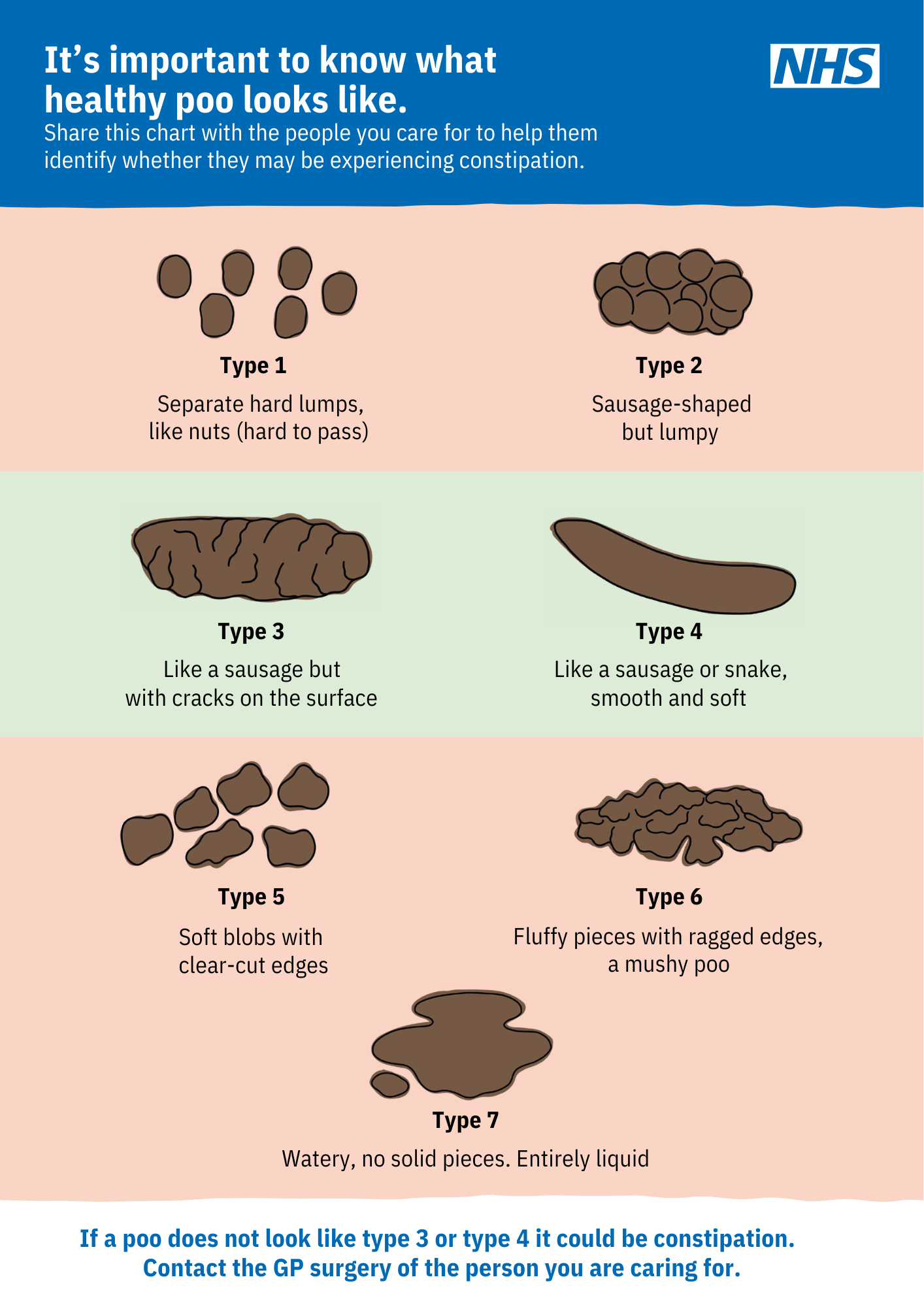Constipation
Constipation is common in childhood, particularly when children are being potty trained at around two to three years old.
What are the symptoms of constipation in children?
These can be tricky to spot. Your child may be constipated if:
- They don't poo at least three times a week
- Their poo is often large, hard and difficult to push out
- Their poo looks like 'rabbit droppings' or little pellets
- If your child is potty trained, soiled pants can be another sign of constipation, because runny poo (diarrhoea) may leak out around the hard, constipated poo. This is called overflow soiling
If your child is constipated, they may find it painful to poo. This can create a cycle: the more it hurts, the more they hold on to poo. The more constipated they get, the more it hurts, and so on. Even if pooing isn't painful, once your child is really constipated, they may try to avoid going to the toilet altogether.
Why do children get constipated?
Your child may be constipated because they:
- Aren't eating enough high-fibre foods like fruit and veg
- Aren't drinking enough
- Are having problems with potty (or toilet) training
- Are worried or anxious about something, such as moving house, starting nursery or the arrival of a new baby
Find out about other causes of constipation in children.
How to prevent your child getting constipated?
- Make sure your child has plenty to drink – offer breastfed babies who aren’t eating solids yet plenty of breastfeeds. Formula-fed babies can have extra drinks of water between their formula feeds. See more advice on drinks for babies and toddlers.
- Give your child a variety of foods, including plenty of fruit and vegetables, which are a good source of fibre. See what to feed young children.
- Encourage your child to be physically active. For more information, read the physical activity guidelines for children aged under five years.
- Get your child into a routine of regularly sitting on the potty or toilet, after meals or before bed (for 5 minutes), and praise them whether or not they poo. This is particularly important for potty-trained boys, who may forget about pooing once they are weeing standing up. Reward schemes appropriate for age are important; as is consistency and patience.
- Make sure your child can rest their feet flat on the floor or a step when they're using the potty or toilet, to get them in a good position for pooing. Take a look at the Children's Bowel & Bladder Charity's leaflet, Children’s Bowel Problems for a picture of this.
- Ask if they feel worried about using the potty or toilet – some children don't want to poo in certain situations, such as at nursery or school.
- Stay positive and reassuring, so that your child doesn't see going to the toilet as a stressful situation – you want your child to see pooing as a normal part of life, not something to be ashamed of.
What to do if you think your child has constipation
- Firstly, try to stay calm. Getting constipated and soiling their clothes isn't something your child is doing on purpose
- You may both find the situation stressful, but staying positive and relaxed is the best attitude to help your child, and praising positive steps is important.
If your child is potty training, they may be feeling anxious or stressed about using the toilet. This can cause them to hold in their poo and lead to constipation.
- Give your child plenty of time to use the toilet while they are still learning.
- Encourage them when they do use the toilet. Some parents find a reward chart works.
- If you think your child is having difficulty with toilet-training, you can also chat to your health visitor.
If your child remains constipated despite the measures listed above, take them to their GP who can decide if they need medicines. The treatment for constipation depends on your child’s age. The longer your child is constipated, the longer it can take to get back to normal, so make sure you get help early.
Laxatives are often recommended for children, alongside diet and lifestyle changes.
It may take several months for the treatments to work, but keep trying until they do. Remember that laxative treatment may make your child's overflow soiling worse for a time before it gets better so consider the impact e.g. on school/planned trips.
Once your child's constipation has improved, it's important to stop it coming back. Your GP may advise that your child keeps taking laxatives for a while to make sure their poo stays soft enough to push out regularly: the medicines are safe and don’t cause a lazy bowel.
If you think it’s serious
- If your child is experiencing significant pain or regularly soiling their pants, despite being on treatment, you should take them back to see your GP.
- Some children need more intense treatment of their constipation and your GP may decide that a paediatrician needs to be involved in their care.
- If your baby/child develops a new-onset severe tummy ache, please click here for advice about what to do.
More information and support:
NHS Choices info on constipation in children
Contact the ERIC helpline on 0845 370 8008, Monday to Thursday 10am to 2pm, or email a question to helpline@eric.org.uk
ERIC's guide to children's bowel problems





